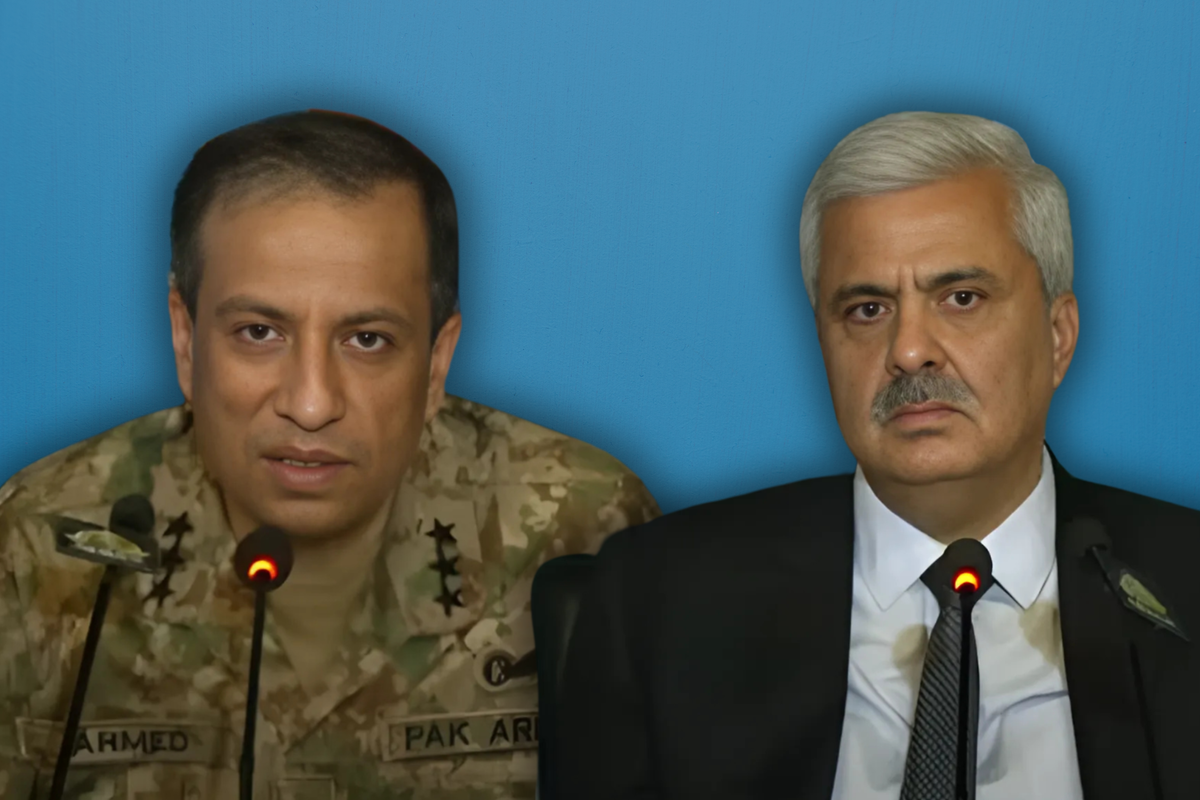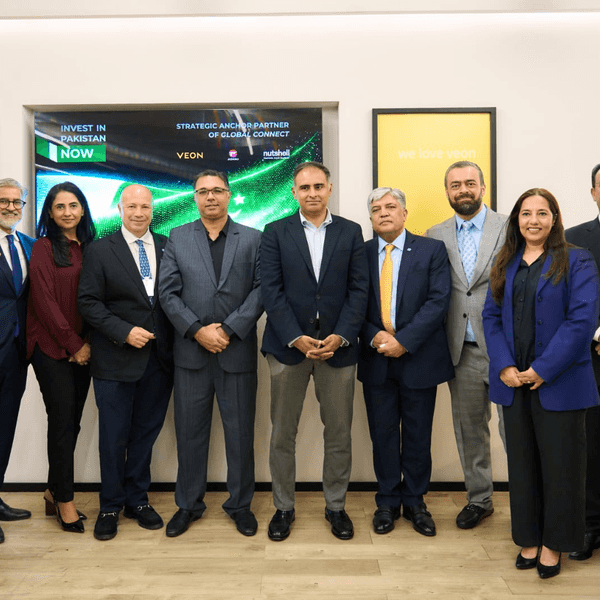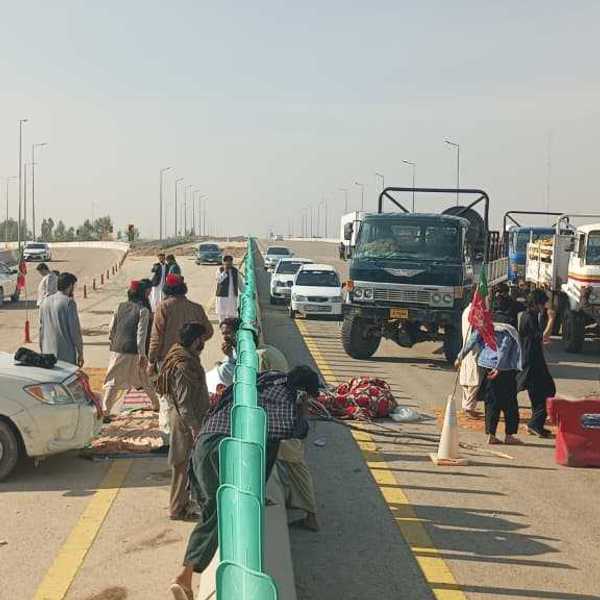Pakistan says India behind Khuzdar attack that killed six schoolchildren
DG ISPR says ceasefire holds but peace with India remains elusive; calls for exposing ‘evil face’ of activists like Mahrang Baloch
News Desk
The News Desk provides timely and factual coverage of national and international events, with an emphasis on accuracy and clarity.

Pakistan on Friday condemned India for its alleged involvement in the brutal attack on a schoolchildren’s van in Khuzdar, Balochistan, earlier this week which killed eight people including six children and injured over 30, describing the incident as a stark example of Indian-sponsored terrorism targeting innocent civilians and aimed at destabilizing the region.
In a joint press conference, Director General of Inter-Services Public Relations Lt. Gen. Ahmed Sharif Chaudhry and Interior Secretary Captain (retd) Khurram Muhammad Agha described the May 21 assault as more than just an attack on a bus. “This was an assault on our values, our education system, and the very fabric of our society,” they said.
They confirmed that six children lost their lives and over 31 others were injured in the incident.
The attack occurred when a roadside bomb detonated as a school bus traveled along a major highway linking Khuzdar district to Karachi. Approximately 40 students were on board at the time.
Law enforcement agencies are investigating all aspects of the heinous attack, according to the interior secretary. Preliminary findings suggest the incident fits a broader pattern of violence “sponsored by India through Fitna Al Hindustan, operating under the direction of the Indian intelligence agency RAW.”
The spokesperson added that after the failure of the so-called Operation Sindoor, India’s terror proxies have been ordered to escalate their violent campaign in Balochistan and other regions. Their goal, he said, is to sabotage development, spread fear among communities, and derail the peace process -- repeating tactics reminiscent of the 1971 conflict.
In a detailed briefing, the military spokesperson traced Indian state-sponsored terrorism back to Pakistan’s very inception, citing the 1971 Mukti Bahini incident -- where India funded and created the Mukti Bahini guerrilla force -- as a clear example of this longstanding strategy.
Lt. Gen. Chaudhry highlighted that Balochistan’s growing socio-economic progress is a major concern for India. “They recognize the province is at a takeoff point. Look at Reko Diq, it's becoming operational with multiple international partners involved,” he said.
He emphasized Pakistan’s measured and comprehensive approach to combating terrorism in Balochistan, involving coordinated efforts across all national institutions.
“The military is only one part of this. In the past year and a half, we have conducted over 93,000 operations countrywide. Alongside military action, diplomacy and socio-economic development play vital roles,” he added.
Addressing perceptions of India’s military strength and economic power, the DG ISPR challenged skeptics who doubted Pakistan’s ability to counter terrorism. “Some say India’s military and economy are too big. Has our army not responded? Can’t we and the media expose the true face of these terrorists? We have no choice but to confront and defeat them,” he added.
‘Mahrang Baloch is a proxy of terrorism’
Responding to a question about Baloch activist Mahrang Baloch -- currently detained alongside other activists who frequently rally for Baloch rights, the DG ISPR said the media must “unmask their true face” behind claims of human rights advocacy.
He noted that terrorism has no link to human rights, religion, or humanity. Referring to pictures of missing persons these activists carry, he said DNA tests of killed terrorists often match names on these lists.
Citing the Jaffer Express train attack that targeted innocent civilians, he questioned Mahrang Baloch’s legitimacy in demanding the bodies of terrorists, saying such demands should go to the terrorists’ heirs.
He said that it has become clear internationally that she and the Baloch Yakjehti Committee (BYC) act as proxies for terrorism. He insisted that terrorists and their proxies must be dealt with as any nation would “with absolute clarity and resolve”.
'Ceasefire holds, but peace remains elusive with India'
The DG ISPR clarified that while a ceasefire means the firing has stopped, it does not imply that the underlying issues between Pakistan and India have been resolved.
He pointed out three main challenges: first, the current Indian political elite’s mindset, which he described as marked by overconfidence and strategic arrogance. Second, the Kashmir dispute remains unresolved, preventing lasting peace. He emphasized that Kashmir is an external issue involving Pakistan, India, and even China, and condemned India’s continued suppression of Kashmiris.
Third, he accused India of using terrorism as a tool against Pakistan by supporting proxy groups to carry out attacks.
The DG stressed that Pakistan will not bow to such pressures and that the military fully follows the directives of the state and the resolve of the Pakistani people. He warned that it would be madness to believe that water supply to 240 million Pakistanis could be stopped.







Comments
See what people are discussing